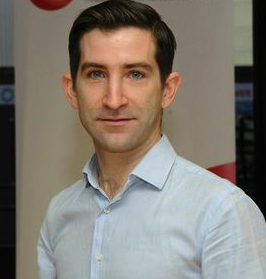We have many postgraduate and early stage DSAI members who are helping to advance development research from various disciplinary angles. To showcase the innovative and exciting research being undertaken by these DSAI members, we will be introducing a postgraduate or early stage researcher each month by asking them five questions that give an insight into their research experiences. This month, we asked Carlos Bruen about his research. Carlos is a PhD Candidate in Epidemiology and Public Health at the Royal College of Surgeons in Ireland (RCSI).
How did you get into development research?
By accident. I’ve had an on-going interest in policies and policy processes, not just in terms of how they might shape the environment in which we live, but also in terms of the social relations and power dynamics that produced them and the practices they seek to legitimize. From the early 2000s, I became especially interested in what was happening around the regulation of intellectual property rights, both in terms of the alliances and coalitions that it brought together, along with its political, economic and ethical dimensions when it came to such issues as access to essential medicines and food security. That’s when I first formally dipped my toes into research that had a development perspective, and which has since moved decisively towards health. Like many of us whose work or interests is at one point or another classified under the broad banner of ‘development research’, the terms sits a bit uncomfortably as a description of the research and lived experience. The outmoded separation of a field of research focused ‘out there’ and detached from ‘home’ still haunts the discipline. But the commonalities can be as striking as the differences, and this helps me to situate my work within the context of inter-state and global relations, historically, politically and economically. Having at one point got into development research, I guess this is where I am now.
What are you working on at the moment?
The early 2000s was a time of significant change in the field of global health. New global health initiatives were emerging that not only challenged more established bureaucratic structures and modes of cooperation, but were also reconfiguring the global health landscape. My PhD research is focused on two of these organisations, GAVI, the Vaccine Alliance, and the Global Fund to Fight AIDS, Tuberculosis and Malaria. My interest is in the conditions and processes that gave rise to their emergence, and how their organisational structures, policies and practices evolved. Central to all of this of course were the actors involved. And so as part of the research I conducted qualitative stakeholder interviews with many of the people directly involved both in forming these initiatives and in shaping their future trajectories. The interview period was easily the most exciting part of the work, and it left me with a deep appreciation of the complexity of this policy environment and how different coalitions with varying degrees of influence navigate it. I also realised how conducting interviews for research gives you licence to ask questions you might otherwise not ask, and to get answers you certainly will not expect. I’m writing up the research at present.
What impact do you hope your research will have?
The research aims to contribute to the evidence base on global health policy processes, treating them not as some technical exercise driven by cost-effectiveness, disease burden or epidemiological analyses but ultimately as a human endeavor, and all the challenges and contradictions that this entails.
Which book or writer has most influenced your career?
It is difficult to identify one. The conceptual tools developed by the sociologist Pierre Bourdieu have been very influential, providing me with a language to understand and describe so much of what I experience and what I research. At the other end of the alphabet’s spectrum, the clarity and insight in the work of health policy analyst Gill Walt and colleagues she has worked with has time and again guided me in parsing through the complexity of global health processes. Both are sources I return to most regularly, and so probably a good indication of the influence they have on my work.
What one recommendation would you have for anyone interested in postgraduate study and a research career in development studies?
Recognise that you are part of the research, positioned within it and writing or speaking as a member of the communities you are researching - albeit one from a relatively privileged position.
.
